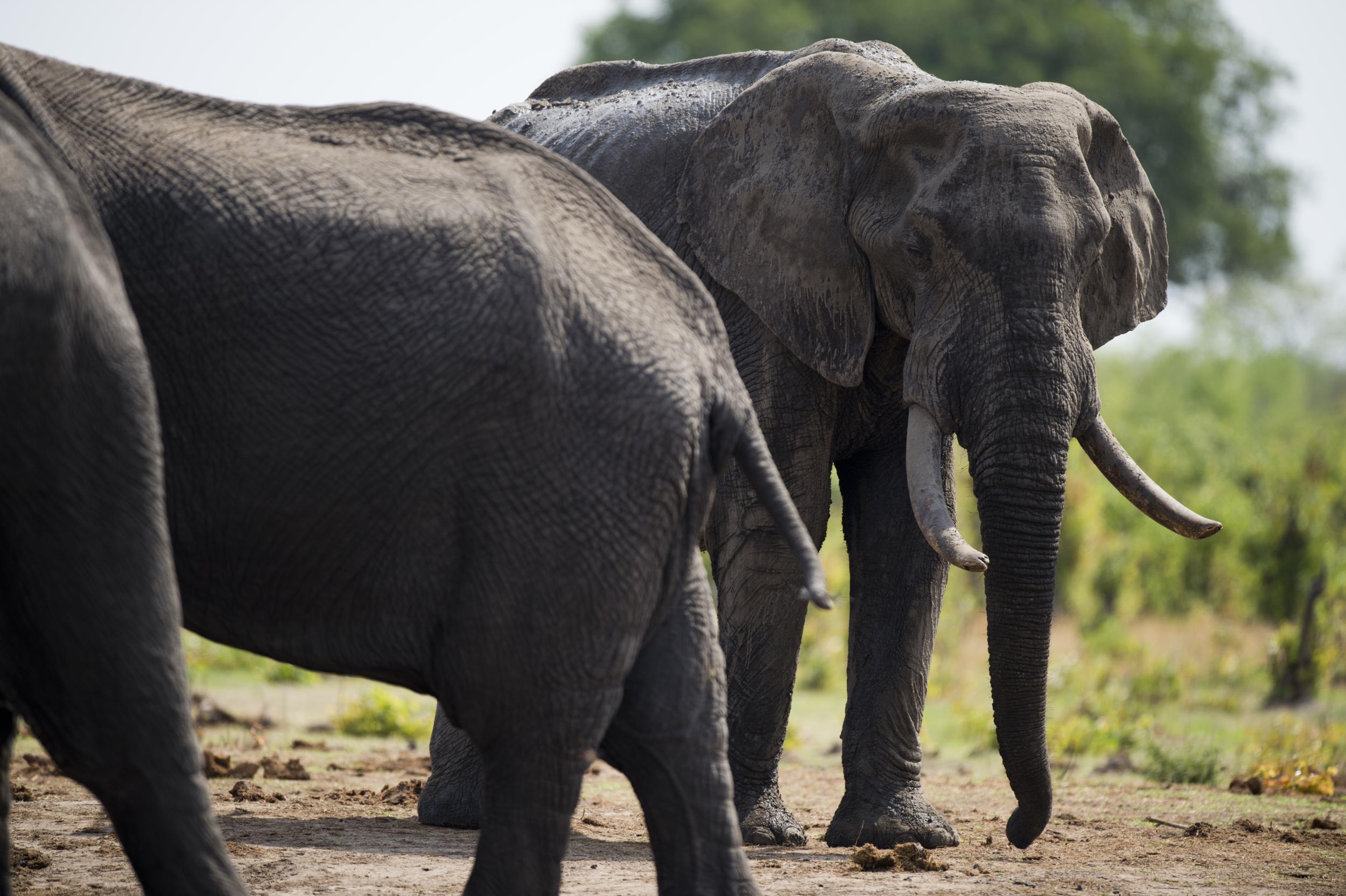Donald Trump lifts ban on importing elephant hunt trophies from Zimbabwe and Zambia
Conservation groups condemn 'reprehensible' decision and warn of increase in poaching

Your support helps us to tell the story
From reproductive rights to climate change to Big Tech, The Independent is on the ground when the story is developing. Whether it's investigating the financials of Elon Musk's pro-Trump PAC or producing our latest documentary, 'The A Word', which shines a light on the American women fighting for reproductive rights, we know how important it is to parse out the facts from the messaging.
At such a critical moment in US history, we need reporters on the ground. Your donation allows us to keep sending journalists to speak to both sides of the story.
The Independent is trusted by Americans across the entire political spectrum. And unlike many other quality news outlets, we choose not to lock Americans out of our reporting and analysis with paywalls. We believe quality journalism should be available to everyone, paid for by those who can afford it.
Your support makes all the difference.Donald Trump's administration is to allow the remains of endangered elephants legally hunted in two African countries to be imported to the US, reversing a ban introduced by Barack Obama.
The US government has scrapped regulations which forbid elephant trophies being brought into the country from Zimbabwe and Zambia, arguing hunting could help conservation efforts.
The Obama administration banned imports of trophies from Zimbabwe in 2014 after finding the nation's management of legal hunting did not "enhance the survival of the African elephant the wild".
The species is listed as "threatened" under the US Endangered Species Act and importing African elephant ivory to America is banned unless certain conditions are met.
But the US Fish and Wildlife Service, announcing the lifting of the ban in Zimbabwe and Zambia, said money raised through hunting permits could boost conservation efforts. "Legal, well-regulated sport hunting as part of a sound management programme can benefit the conservation of certain species by providing incentives to local communities to conserve the species and by putting much-needed revenue back into conservation," a spokesman said.
"To support conservation, hunters should choose to hunt only in countries that have strong governance, sound management practices, and healthy wildlife populations."
It did not say what had changed since the ban was imposed in Zimbabwe, where the elephant population had declined six per cent since 2001, according to last year's Great Elephant Census.
The decision to lift the ban was described as "jarring" by the Humane Society. "Evidence shows that poaching has increased in areas where trophy hunting is permitted,” said chief executive Wayne Pacelle. “Remember, it was Zimbabwe where Walter Palmer shot Cecil, one of the most beloved and well-studied African lions, who was lured out of a national park for the killing. Palmer paid a big fee even though it did irreparable damage to the nation’s reputation.
“Let’s be clear: elephants are on the list of threatened species; the global community has rallied to stem the ivory trade; and now, the US government is giving American trophy hunters the green light to kill them.
“It’s time for the era of the trophy killing of Africa’s most majestic and endangered animals to come to a final close, and the United States should not be retreating from that commitment.”
The Elephant Project conservation group criticised "reprehensible behaviour by the Trump administration", adding: "This will lead to more poaching."
Hunting group Safari Club International praise the lifting of the ban, and said the decision "recognises that hunting is beneficial to wildlife and that these range countries know how to manage their elephant populations".
The US previously allowed ivory to be imported only from Namibia, South Africa and Botswana, although sport hunting is banned in the latter county. The President's son, Donald Trump Jr, sparked a wave of condemnation in 2012 when he was pictured holding the severed tail of an African elephant.
Join our commenting forum
Join thought-provoking conversations, follow other Independent readers and see their replies
Comments